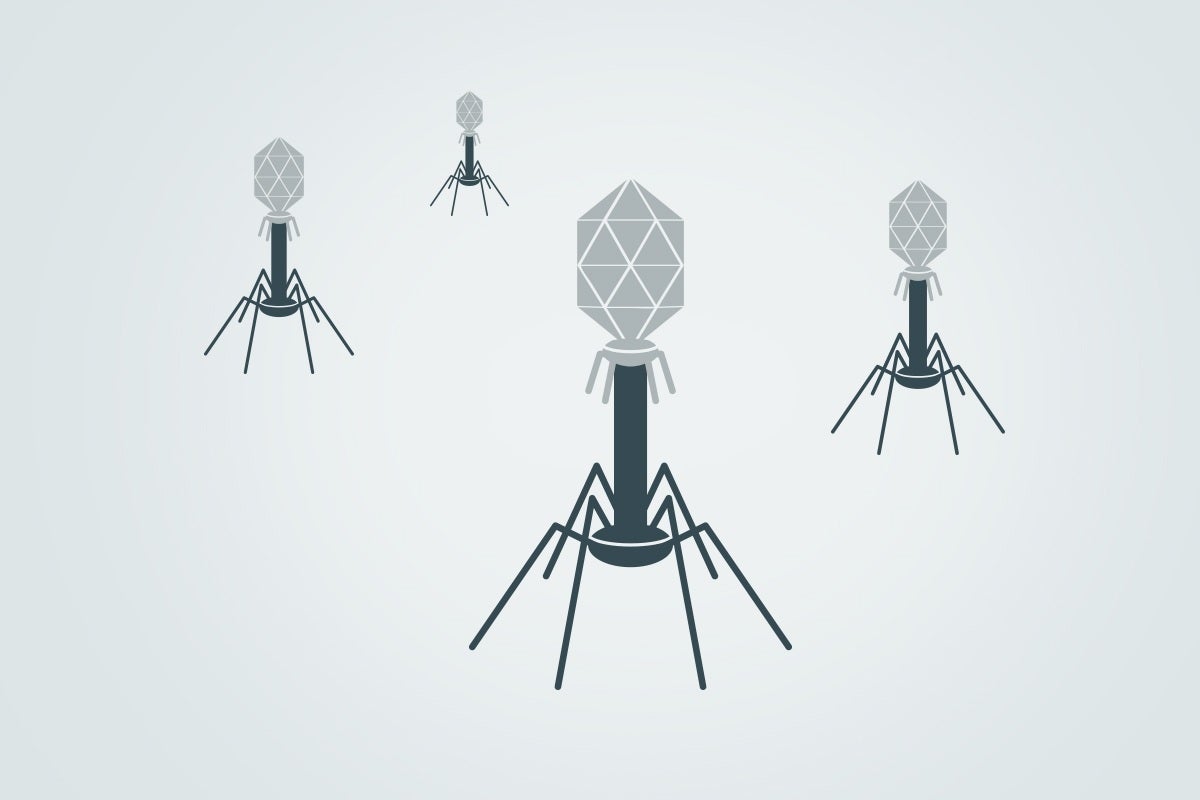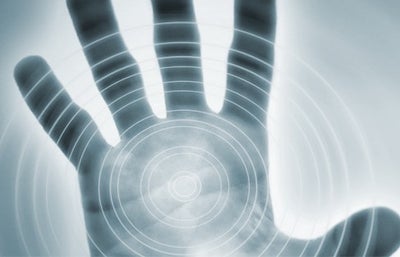Powered by medperts: The phage renaissance
The fight against multi-resistant pathogens could be won with the help of bacteriophages.
It is part of the job of Dr. Christine Rohde to fish in murky waters. As a microbiologist at the DSMZ, the Leibniz Institute's German Collection of Microorganisms and Cell Cultures (1), she is searching for phages. These are special viruses which are found in nature and act as natural enemies of dangerous bacteria while at the same time being harmless to human beings.
From time immemorial, phages have controlled the number of bacteria in the world. One third of the overall bacterial mass is continually being destroyed by phages. Experts estimate the number of phage particles on earth at 10³². In the current crisis with increasingly ineffective antibiotics and multi-resistant organisms, researchers and physicians are taking another intensive look at phages.
Elegant, logical, sustainable
This interest is growing because the fight against germs in hospitals could also be conducted via alternative methods such as treatment with phages (also called bacteriophages). To gather ammunition for this endeavor, Christine Rohde and her colleagues fan out through sewage treatment plants, rivers, livestock pastures looking for the right types of lytic phages to put an end to such dangerous pathogens as Staphylococcus aureus (2), the life threatening diarrheal germ Clostridium difficile or gram negative rod bacteria from the family Enterobacteriaceae.
"In light of the crisis we have with antibiotics and the fact that broad-spectrum antibiotics in particular destroy stomach and intestinal flora, it is more elegant to make use of the biologically logical principle of phages against a pathogen," says Rohde. And she emphasizes: "Besides that, with phages we don't have to deal with the environmental problems of antibiotics which have a decidedly long-lasting effect. Species throughout the animal kingdom come into contact with the antibiotics and resistances are developed. Using phages this unfortunate cycle can be avoided."
Phages demand "an entirely different way"
To make better use of the potential therapeutic benefits, Rohde advocates the establishment of large collections of suitable phages. To this end, the DSMZ wants to expand their personnel.
Finding suitable phages, selecting them and then – in a further pharmaceutical purification step – bringing them up to the so-called Good Manufacturing Practice standard (8) for drugs is exceedingly complicated and work intensive. "With phages one has to think in an entirely different way," in Rohde’s opinion. Therefore it is better when smaller companies that really understand the situation concentrate on the manufacture of phages for medical purposes. What is needed is an effective cooperation between microbiologists and physicians.
List of references
- (1) Leibniz-Institut Deutsche Sammlung von Mikroorganismen und Zellkulturen https://www.dsmz.de/de/start.html
- (2) „Neuer Wirkstoff gegen gefürchtete Krankenhauskeime“, Press release, 29 May 2015 http://www.dzif.de/news_mediathek/news_pressemitteilungen/ansicht/detail/artikel/projekt_am_start_neuer_wirkstoff_gegen_gefuerchtete_krankenhauskeime/
- (8) Good Manufacturing Practice (GMP) is a part of quality assurance and aims to ensure that products are consistently produced and controlled according to the quality standards required by the agencies authorizing and licensing manufacture and sales of food, drugs and pharmaceutical products. http://www.who.int/medicines/areas/quality_safety/quality_assurance/production/en/
About medperts
medperts is a knowledge and exchange platform which is intended for anesthesiologists and intensive care physician, surgeons, nephrologists, orthopedists and trauma surgeons. The portal can be accessed via www.medperts.com and other domains and with the iPhone and Android smartphones using an app. The full content and functionality of medperts is only accessible to licensed physicians; this ensures that the medical content is only available to the expert groups and that the exchange of knowledge between members is based on expertise. After registering successfully, every physician can contribute to the professional exchange and utilize all of the benefits offered by the platform for their day-to-day work. medperts can be used free of charge.
The medperts medical editorial department researches the current medical field topics on a daily basis and makes a selection of the most important scientific study results and relevant developments available to you. In order to provide you with high quality information, experienced medical specialists and medical journalists are responsible for the editorial department.



